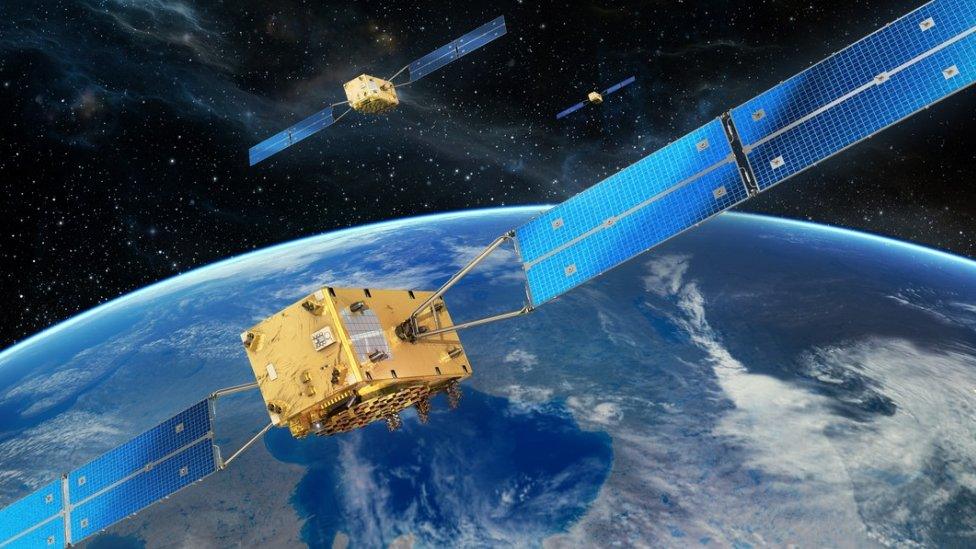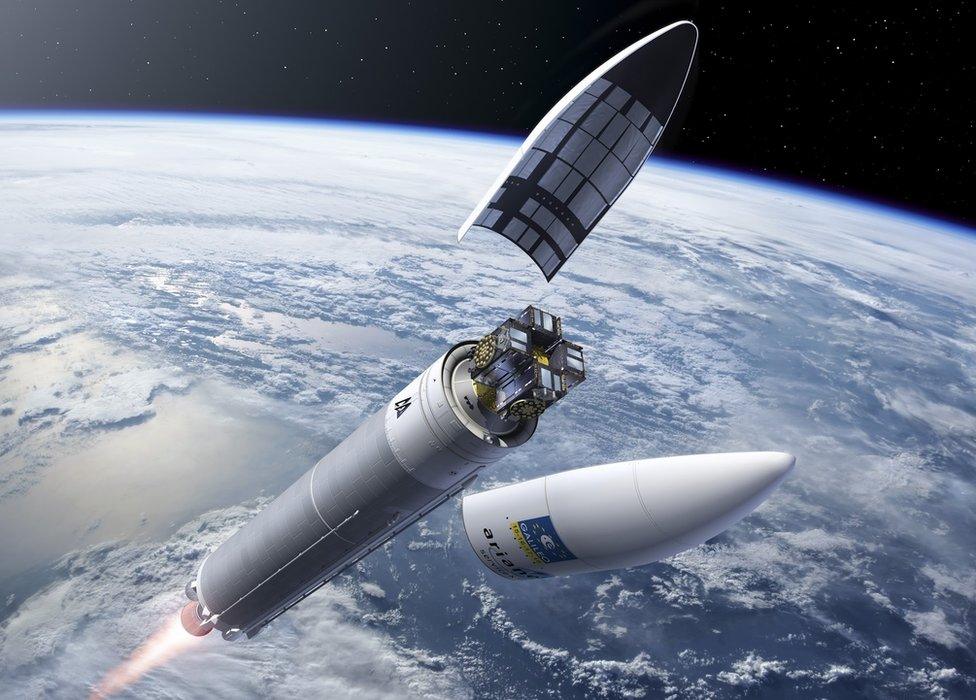UK rebuffed over Galileo sat-nav procurement
- Published

Artist's impression: There are currently 22 Galileo satellites in orbit
The UK space industry, fighting to be part of the European satellite-navigation system, Galileo, has suffered another Brexit setback.
Delegations to the European Space Agency have approved the procurement of the next batch of spacecraft, despite British calls to delay.
The decision means UK companies will find it hard to win any contracts.
As it stands, no deal has been agreed between London and the EU-27 to allow Britain continued participation.
Even if this is eventually negotiated, any decision will probably come too late for UK firms to make the kind of bids for satellite work they have in the past.
Science minister Sam Gyimah said the vote at an Esa Council meeting to proceed with procurement put at risk Britain's future security relationship with the EU.
"The simple fact is that without full, fair and open industrial involvement, Galileo doesn't offer the UK value for money or meet our defence needs, so we would be obliged to walk away, resulting in delays and additional costs to the programme that will run into the billions," he said.
"There is an option on the table that would benefit both the UK and EU. If that is not accepted by the EU, we are a proud and confident nation and will be looking at all alternatives." Ministers have previously talked about the UK building its own sat-nav system, which could cost £3-5bn.
The European Commission says Brexit means the UK will have to be excluded from a key element of Galileo after March next year.
This is the Public Regulated Service, or PRS - a navigation and timing signal intended for use by government agencies, armed forces and emergency services.
The PRS is designed to be available and robust even in times of crisis.
Brussels says London cannot immediately have access to it when the UK leaves the European bloc because it will become a foreign entity. PRS is for EU member states only. The UK believes to stay part of Galileo, it must have full access to PRS.
Mr Gyimah wrote to the EC's commissioner for space, Elżbieta Bieńkowska, requesting Esa delay its deliberations to give negotiations a chance to succeed. "To press ahead with the Batch 4 vote now could prejudge the outcome of further negotiations which is something I am sure we want to avoid," he said in his letter.
The European Commission uses the European Space Agency as its technical and design agent on Galileo.
So far, Esa has put 22 satellites in orbit for the network and has commissioned others to take the total number above 24 - considered a full system - plus spares.
Batch 4, valued at some €400m, would likely acquire 12 additional satellites to act as the rolling replacements for earlier models in orbit that reach the end of their operational lives.
To date, British engineers have assembled the payloads - the "brains" - of every single Galileo satellite.

Europe's Galileo system

Artwork: Galileo satellites go into orbit two or four at a time
A project of the European Commission and the European Space Agency
24 satellites constitute a full system but it will also have six spares in orbit
22 spacecraft are in orbit today; the 30 figure is likely to be reached in 2021
Original budget was €3bn but will now cost more than three times that
Spacecraft have been launched in batches of two, but now go up four at a time
Will work alongside the US-owned GPS and Russian Glonass systems
Promises eventual real-time positioning down to a metre or less
